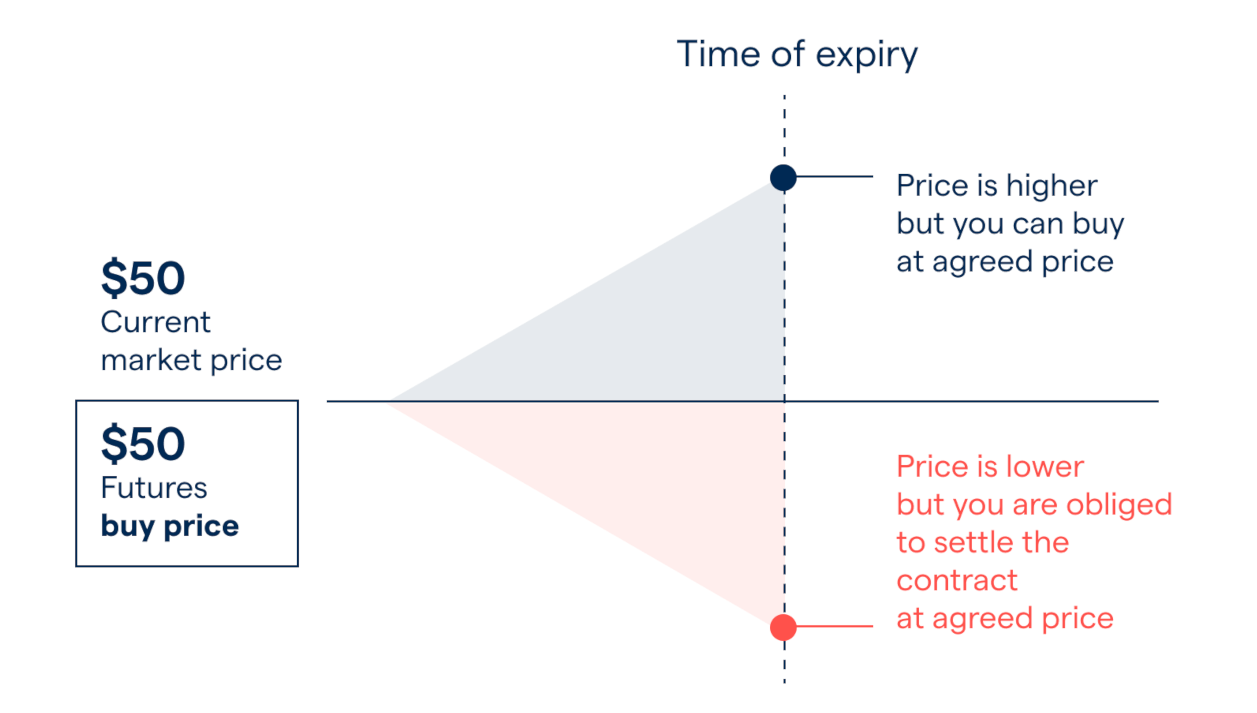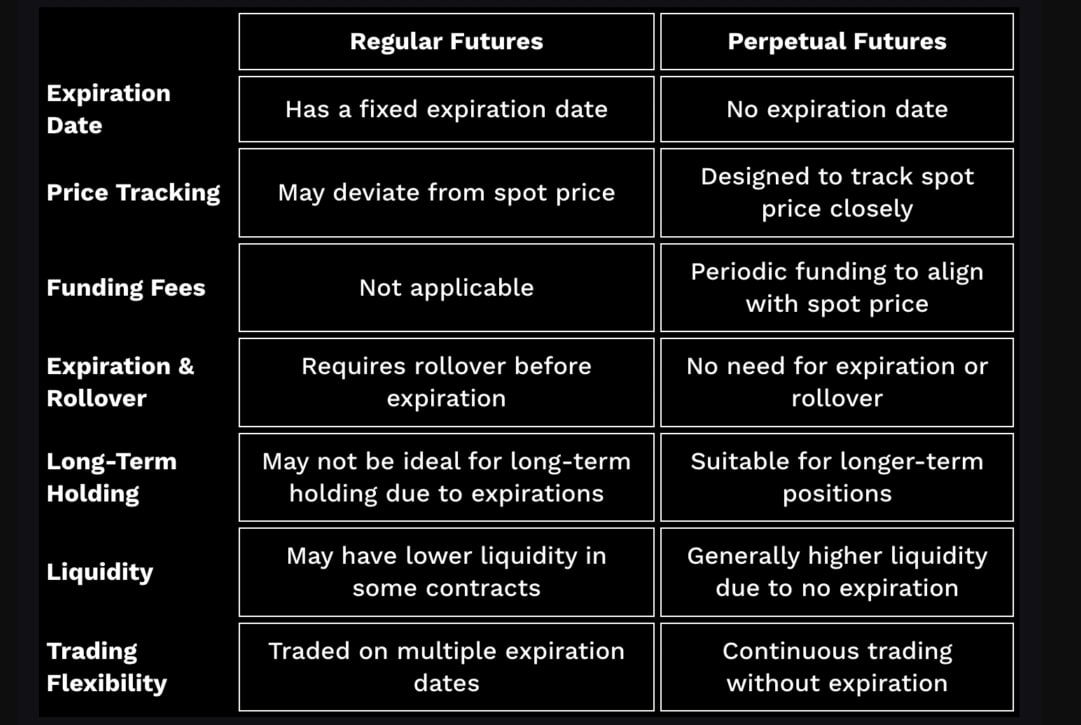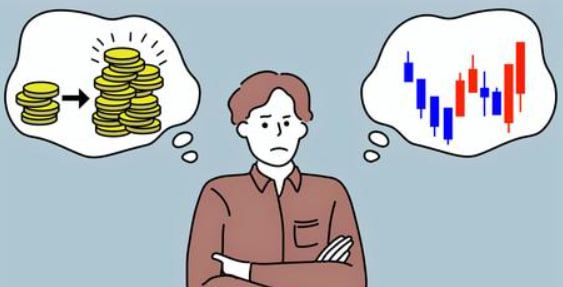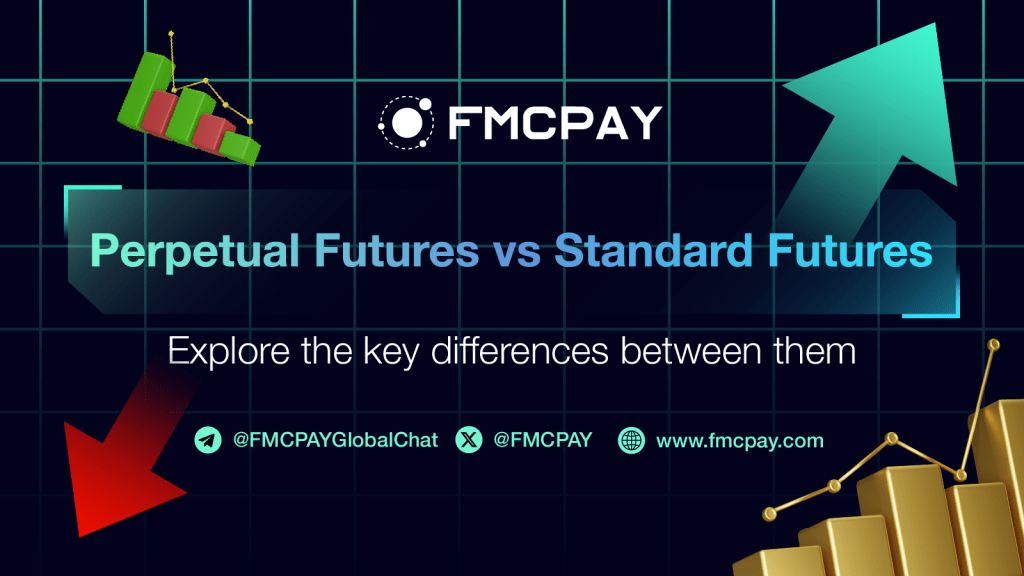Every trader seeks an edge in the crypto market. In this guide, FMCPAY will explain the differences between Perpetual Futures vs Standard Futures contracts. Which one might be the key to your trading success? Let’s explore!
1. Overview of Standard Futures Contract
Before dive into the differences between perpetual futures vs standard futures, we should get an idea what futures contract is. A futures contract is a kind of agreement that allows traders to speculate on the future price of a cryptocurrency.
Unlike spot trading, where assets are bought and sold immediately, futures contracts are agreements to buy or sell a specific amount of a cryptocurrency at a predetermined price on a future date. These contracts enable traders to hedge against price fluctuations or speculate on future market movements.

Key Features
- Leverage: Futures contracts often allow traders to use leverage, meaning they can control a larger position than their initial capital would typically allow. This can amplify both profits and losses, making leverage a powerful but risky tool.
- Expiration Date: Standard crypto futures contracts have a set expiration date, at which point they are settled. Depending on the contract’s terms, the settlement can be in cash or the underlying cryptocurrency.
- Market Diversity: Crypto futures markets include a wide range of choices beyond major cryptocurrencies. This diversity enables traders to take positions in various crypto assets.
- Risk Management: Futures contracts offer risk management opportunities through hedging. Traders can lock in prices to protect against unfavorable market movements, making them attractive to both speculators and institutional investors.
2. Introduction to Perpetual Futures Contracts
When exploring the differences between perpetual futures vs standard futures, this type of contracts stand out as a unique derivative product in the crypto market that do not have an expiration date. This feature allows traders to hold positions indefinitely, provided they maintain the required margin. Perpetual futures are designed to mirror the spot price of an asset closely, thanks to the funding rate mechanism.

Key Features
- No Expiration: Unlike standard futures, perpetual contracts never settle in the traditional sense. Traders can hold their positions as long as they want, provided they meet margin requirements.
- Funding Rate Mechanism: To ensure that the contract price remains close to the spot market price, perpetual futures use a funding rate. This rate is a small fee exchanged between traders holding long and short positions, based on the difference between the perpetual contract price and the spot price. When the contract is above the spot price, long holders pay short holders, and vice versa.
- High Leverage: Similar to standard futures, perpetual futures offer high leverage, allowing traders to control large positions with a relatively small amount of capital. This amplifies both potential gains and risks.
- Market Popularity: Perpetual futures are popular in the crypto space due to their flexibility and continuous trading opportunities. They are widely offered on major exchanges like Binance, BitMEX, or Bybit.
Read more: Understanding the Pros & Cons of Perpetual Futures Contracts
Understanding the differences between perpetual futures vs standard futures is crucial for traders looking to navigate the crypto market effectively. While both offer opportunities to profit from market movements, they also come with distinct risks and characteristics.
3. Perpetual Futures vs Standard Futures: Key Differences
In the world of trading, understanding the differences between perpetual futures vs standard futures contracts is crucial for making informed investment decisions. Both types serve to speculate on the price movement of assets, but they have distinct features that can significantly impact trading strategies.
3.1. Expiration and Settlement
One of the most significant differences between perpetual futures vs standard futures is the expiration and settlement process. Standard futures contracts come with a set expiration date, which means that traders must settle their positions by the contract’s expiry. This expiration leads to the physical delivery of the asset or a cash settlement, depending on the contract specifications. As a result, traders need to manage their positions and adjust their strategies around these expiration dates.
In contrast, perpetual futures do not have an expiration date, allowing traders to hold positions indefinitely. This feature provides greater flexibility and eliminates the need to roll over contracts as expiration approaches. The perpetual futures contract remains active as long as the trader maintains the required margin, enabling continuous trading without the pressure of expiration.
3.2. Pricing and Funding Rates
Pricing mechanisms also differ significantly in perpetual futures vs standard futures. Standard futures contracts often trade at prices that reflect future expectations of the underlying asset’s value. As the contract nears its expiration, its price converges with the spot market price.
Perpetual futures, however, use a funding rate mechanism to align the contract price with the spot price of the underlying asset. This funding rate is a periodic payment exchanged between long and short position holders, based on the difference between the perpetual contract price and the spot price. When the perpetual futures price is above the spot price, long position holders pay a funding rate to short position holders and vice versa. This system helps maintain the contract’s price close to the spot market, ensuring stability and minimizing deviations.

3.3. Leverage and Trading Flexibility
Another key difference in perpetual futures vs standard futures is the leverage and trading flexibility available to traders. Both types of contracts allow for leverage, enabling traders to amplify their exposure with a smaller initial investment. However, perpetual futures often provide higher leverage ratios, attracting traders seeking to maximize their returns.
Standard futures offer limited flexibility in terms of contract size and duration due to their fixed expiration dates. Perpetual futures, with their continuous nature, allow traders to enter and exit positions more fluidly, adapting their strategies to market conditions.
In conclusion, understanding the key differences between perpetual futures vs standard futures is crucial for traders. These distinctions in expiration, pricing mechanisms, and trading flexibility make each type of contract suitable for different trading objectives and risk profiles. By recognizing these differences, traders can better align their strategies with market dynamics and achieve their investment goals.
4. Choosing Between Perpetual Futures and Standard Futures
When deciding between perpetual futures vs standard futures, consider your trading goals and risk tolerance. Perpetual futures offer continuous trading without expiration dates, making them ideal for those seeking long-term positions and flexibility. However, the funding rate mechanism in perpetual futures can introduce additional costs and complexities. On the other hand, standard futures have fixed expiration dates and can be simpler to manage, but they require regular rollover and may not offer the same flexibility.

Evaluate factors such as leverage options, trading strategies, and market conditions to determine which type suits your needs. Understanding the differences between perpetual futures vs standard futures will help you make informed decisions and tailor your trading approach effectively.
Conclusion
Now that you know about the differences between perpetual futures vs standard futures, which one seems to fit your trading style? Be sure to fully understand it before trading, and don’t forget to stay updated with FMCPAY for more crypto insights!

